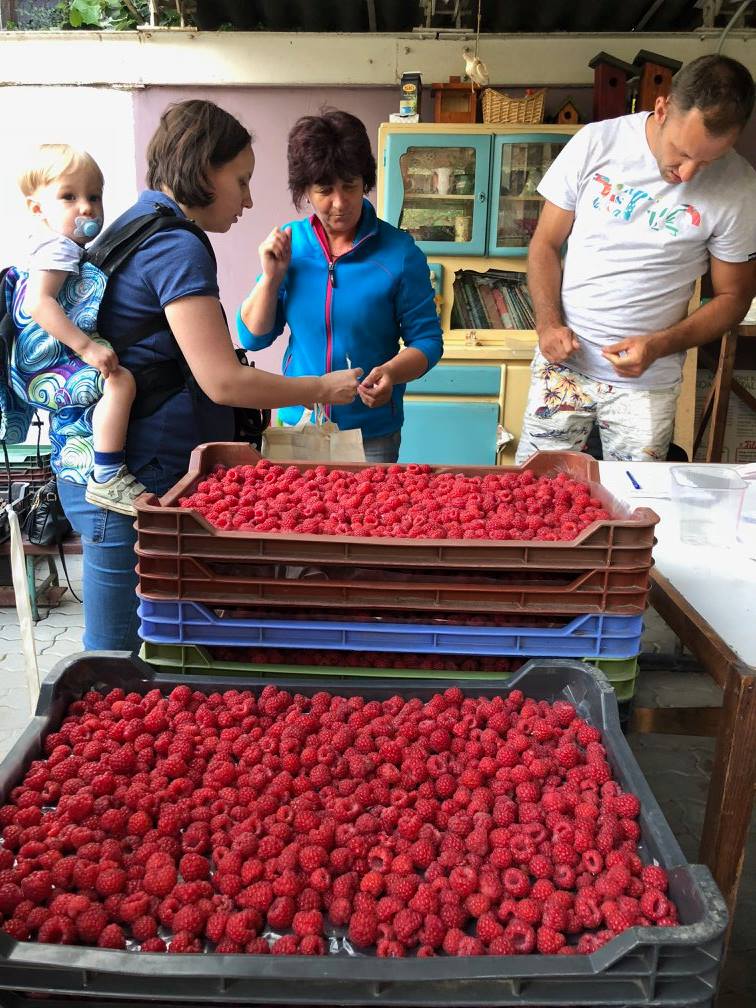At the suggestion of Hungarian Contemporary Architecture Centre, which runs the Kisdiófa community garden, its community has become a pick-up point for Kisdiófa buyer-community. The VeddEgyütt (“Buy-together”) initiative which coordinates common sales of local farmers’ communities nationwide, includes the garden as a regular venue on its organisation’s list of fairs.
Being a member of a buying community is a climate-conscious decision for several reasons. On one hand it is a perfect way to manage sustainable consumption since you get fresh, seasonal products directly from local farmers. On the other hand, you contribute to the sustainment of local food production.
Those “pick-up” events are regularly being accompanied by various programmes in the spirit of climate adaptation, such as common food processing and preserving workshops, awareness-raising lectures etc. All members of the buying community (incl.: those, who are not members of the gardening community) and locals from the neighbourhood are allowed to attend the events.




Kisdiófa community garden
NGO
2005
H-1077 Budapest, Kis Diófa u. 4.
The Kisdiófa Community Garden was opened in the 7th district of Budapest in 2016 with the support of the Municipality of Erzsébetváros, under the professional guidance and coordination of the Hungarian Contemporary Architecture Centre (KÉK). There are 44 individual/family plots and 4 raised beds for educational and other (art, community etc.) activities have been created. Located in the middle of the so-called “Party-district”, this green “oasis” hosts a variety of community, professional and cultural events.
Being a member of a buying community is a climate-conscious decision for several reasons. In one hand it is a perfect way to manage sustainable consumption since you get fresh, seasonal products directly from local farmers. On the other hand, you contribute in sustainment of local food production and have the chance to get to know personally the farmers who provide food to you and your family.
Being a member of a buying community is a climate-conscious decision for several reasons. On one hand it is a perfect way to manage sustainable consumption since you get fresh, seasonal products directly from local farmers. On the other hand, you contribute to the sustainment of local food production.
The role of community gardens in promoting food self-sufficiency, shortening the food supply chain and providing access to healthy food contributes to increasing the climate resilience of urban residents.